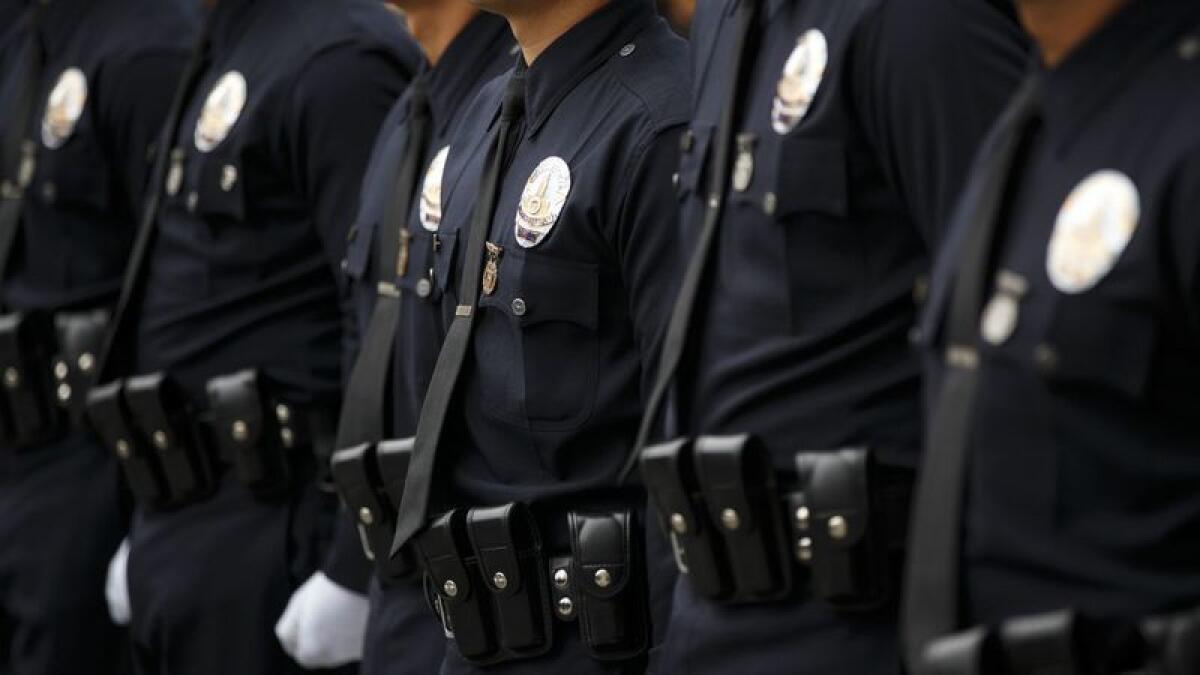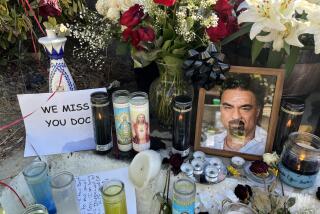The witness is dead, city told attorneys for criminalist suing LAPD. But she wasn’t

As lawyers for Jennifer Francis began building their retaliation case against the Los Angeles Police Department, the first person they wanted to depose was the department psychologist who had evaluated their client’s mental health.
They were told by the city in late 2015 that Dorothy Tucker was dead.
But she wasn’t.
The attorneys learned — by chance, about a year later — that Tucker was still alive. Francis had stumbled upon an obituary in which Tucker was listed as a surviving relative.
“They hid the witness from us,” said John Taylor, an attorney representing Francis. “It’s crazy. Because what’s the inference? That the person’s got that much damaging information.”
The city declined to comment Thursday on why it said Tucker was dead, but its attorneys argued in court papers that she would have been too ill to testify anyway.
The tangle was revealed in the lead-up to the civil trial, which is now underway, with the judge ruling that the back-and-forth between attorneys about Tucker’s whereabouts would not be allowed in as evidence. Tucker eventually died at 79 of Alzheimer’s and other health problems in late 2017, about two years after Francis’ attorneys first tried to reach her.
Francis, a criminalist who helped solve a brutal 1986 murder carried out by an LAPD cop, alleged that after she raised concerns of a cover-up, she faced retaliation that included being forced into sessions with Tucker on a bogus claim that she slept with a gun under her pillow.
Taylor said Tucker’s account would have strengthened Francis’ testimony about why she was ordered into the sessions and raised questions about the credibility of her supervisors who have said they did not report that she slept while armed.
“It would’ve been devastating to the city if she were to come into court and say, ‘This woman came to me and there was absolutely nothing that required her to come and see me,’” Taylor said.
The city has argued that the mental health referral didn’t hurt Francis’ career — she was not demoted or denied pay, but in fact was recognized for her work.
Francis’ involvement in the murder case dates back to 2004, when she was a new DNA analyst in the LAPD’s crime lab. She discovered early the next year that DNA from a bite mark on the victim’s arm belonged to a woman and questioned the theory that the brutal slaying was the work of a two male burglars.
Francis said the cold case investigator at the time shut her down, insisting it was a male-female burglary team. The case stalled for four years until it wound up on the desk of a homicide investigator in Van Nuys who found out the killer was an LAPD detective.
After Det. Stephanie Lazarus’ arrest, Francis raised concerns about why the case wasn’t solved earlier. She said the cold case investigator knew the detective was a former girlfriend of the victim’s husband.
Lazarus was convicted of first-degree murder in 2012 and sentenced to 27 years to life in prison with the possibility of parole.
Francis filed her lawsuit in 2013, and about two years later, her attorneys began setting up depositions with city employees. That’s when they were told by email that Tucker was dead.
“So, that deposition can’t go forward,” Deputy City Atty. Daniel Aguilera wrote in December 2015.
Aguilera declined to comment Wednesday when reached by phone.
After Francis came across the obituary of Tucker’s sibling, her attorneys hired a private investigator to find the psychologist.
With a subpoena, the investigator showed up at her home in February 2017 — her husband said she was out shopping for the day. The private investigator returned the next day, when another man answered the door and said Tucker was ill.
Then he heard a woman’s voice from inside: “Tell him I talked to Tim Lye at Legal Affairs and he said he would have the subpoena pulled back and I don’t have to take it,” the voice said, the investigator wrote in a sworn statement.
In May, city attorneys turned over a doctor’s note that was dated more than a year earlier in which a Kaiser physician said Tucker had Alzheimer’s disease. “She is cognitively impaired and not able to be deposed,” the doctor wrote in March 2017.
The city’s attorneys said in court papers it was “simply not reasonable” to assume that Tucker would have been competent enough to sit for a deposition in January 2016.
“The simple sad fact is that Dr. Tucker was not well,” they wrote. “Rather, she was seriously ill with the Alzheimer’s disease that would ultimately claim her life.”
Twitter: @AleneTchek
More to Read
Sign up for Essential California
The most important California stories and recommendations in your inbox every morning.
You may occasionally receive promotional content from the Los Angeles Times.











